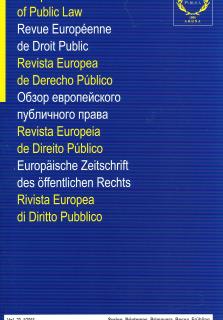
Global Administrative Order
Albania
Recent developments in international law are welcomed as indicating the beginning of the age of global rule of law. Among these developments is the emerging Global Administrative Law. The regulatory bodies subject to the new global administrative law fall into two basic categories: international or transnational public and private bodies on the one hand, and domestic administrative bodies whose decisions have significant external regulatory impacts on the other. This global trend had its impact on the domestic regulatory framework and practice in Albania, as well. The consequences of worldwide economic integration, trans-boundary environmental spillovers, cross-border movements of populations, and other phenomena of globalization can no longer be effectively managed by separate national regulatory and administrative measures. In response, many different systems of international and transnational regulation or regulatory cooperation have been established by states, international organizations, domestic administrative officials, and multinational businesses and NGOs, producing a wide variety of global regulatory regimes. The recent developments lead us to define global administrative law as comprising the mechanisms, principles, practices, and supporting social understandings that promote or otherwise affect the accountability of global administrative bodies, in particular by ensuring they meet adequate standards of transparency, participation, reasoned decision-making, and legality, and by providing effective review of the rules and decisions they make.





















